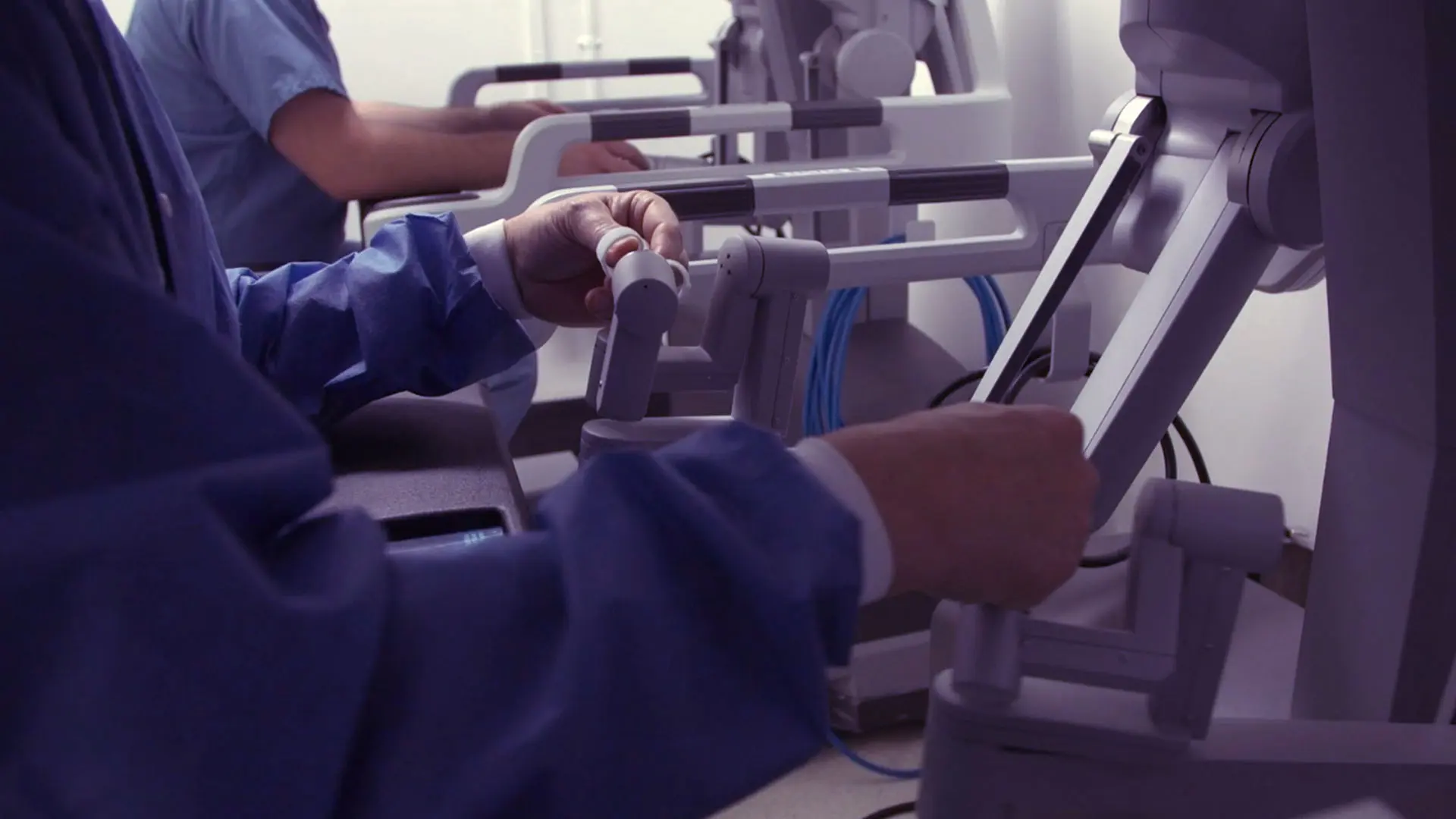The Milton and Carroll Petrie Department of Urology at the Icahn School of Medicine at Mount Sinai is a leader in the diagnosis and treatment of bladder cancer and is committed to providing patients access to groundbreaking treatments and techniques.
One of the more recent and significant examples of this approach comes from Peter Wiklund, MD, PhD, Director of the Bladder Cancer Program at the Mount Sinai Health System, who has become one of the first surgeons in the world to use a single-port robot to perform radical cystectomies with a urinary diversion.
Since January 2020, Dr. Wiklund, Professor of Urology at the Icahn School of Medicine and a world-renowned surgeon who pioneered robot-assisted cystectomy, and his team have completed 15 of the single-port procedures using the new da Vinci SP system. Unlike the previous generation four-port robot, it has a single 2.5 cm cannula equipped with a camera and three fully wristed, elbowed instruments, enabling surgery to be performed with a single incision.
“We are using it to see if we can achieve better outcomes among our patients,” says Dr. Wiklund, who has performed more than 3,000 robotic surgeries during his career.
Although the port size is larger than the 8 mm ports created using the four-armed robot, the single-port robot could offer potential rehabilitation and cosmesis benefits for patients, and the system is particularly suited for procedures involving creation of a stoma, according to Dr. Wiklund.
“By using the single port to create the stoma, patients virtually have no incision at all,” says Dr. Wiklund, who joined Mount Sinai in 2018 with the goal of building a strong bladder cancer program to complement Mount Sinai’s comprehensive robotic prostate cancer and robotic kidney surgery program, while also enriching Mount Sinai’s training and research initiatives. “That is one potential benefit, but we are still in the early stages of assessing what its advantages could be.”

Peter Wiklund, MD, PhD, Director of the Bladder Cancer Program, joined Mount Sinai in 2018 with the goal of building a strong bladder cancer program to complement Mount Sinai’s comprehensive robotic prostate cancer and robotic kidney surgery program.
Single-port surgery poses challenges, in part because it eliminates the strategically placed ports that facilitate approach to the area of interest. Furthermore, visualization of the area is also centered around the single port.
Dr. Wiklund has developed and perfected techniques to address these challenges, establishing a clearly defined procedure that other surgeons can follow, as he previously defined and described his technique for nerve-sparing robotic cystectomy and subsequent intracorporeal neobladder formation.
Dr. Wiklund has been careful in selecting candidates for single-port surgery. He has been excluding patients who have previously undergone abdominal surgery as they typically present with a degree of associated scarring that poses considerable challenges for insertion of instrumentation.
He is also excluding patients who have comorbidities as they are at a higher risk for complications. “For the most part, we are selecting patients who are healthy and who require a stoma,” he says.
To optimize outcomes, Mount Sinai’s approach is to adhere to a non-opioid protocol for patients undergoing robot-assisted radical cystectomy. Research has shown that this protocol enables an earlier return to a regular diet, shorter hospital stays, and no difference in pain scores among patients.
Patients are followed closely post-surgery, starting with a follow-up consultation one week later to discuss pathology results and recovery. They also receive a personalized, post-operative treatment plan, and they are connected with bladder cancer support groups to help them manage their health.
Dr. Wiklund says outcomes have been positive to date and he is collecting data to assess the overall benefits of single-port surgery for patients.
“We are recording our results and comparing them to our more traditional robotic procedures, but we need more patients and a year of follow-up before we can say whether there is a difference from traditional robotic procedure,” he says. “What we can say is there have been no side effects so far, which is encouraging.”
Featured

Peter Wiklund, MD, PhD
Director of the Bladder Cancer Program and Professor of Urology